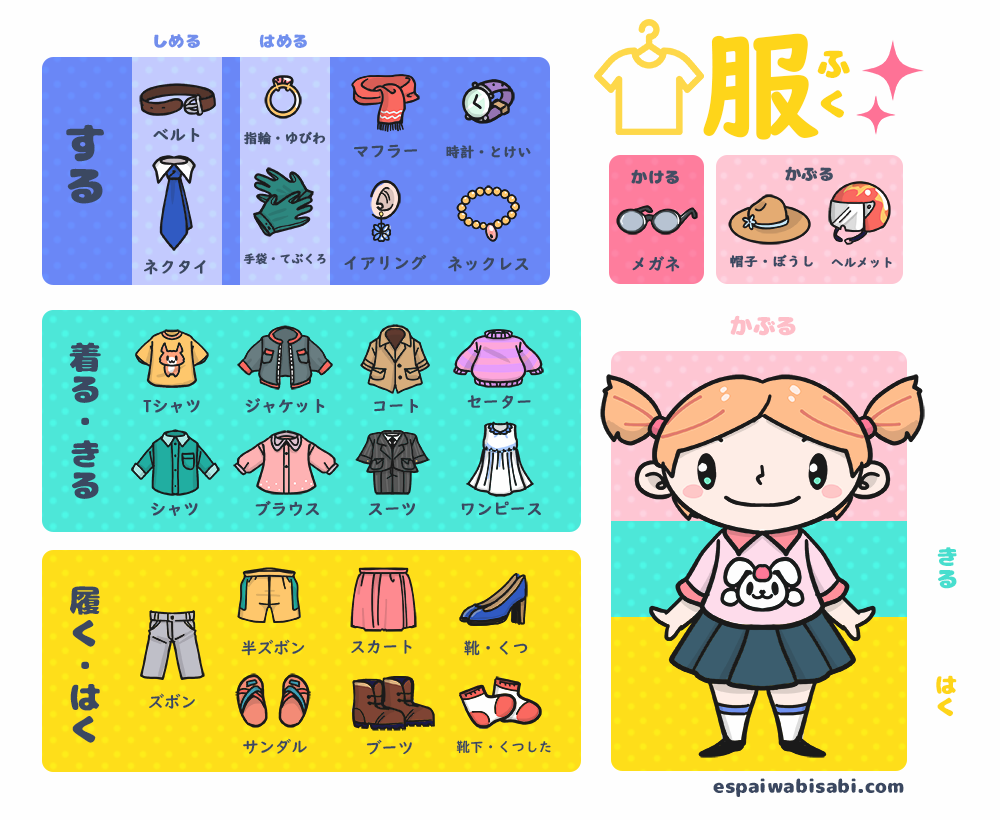眼鏡
Tags
- popular
- Words commonly used in modern Japanese #popular
- gikun or jukujikun
- Gikun and jukujikun are readings of kanji combinations that have no direct correspondence to the characters' individual on'yomi or kun'yomi readings. #gikun
- JLPT N5
- JLPT N5 words: Basic Level #jlpt5
- usually written using kana alone
- Words and expressions which are always written using hiragana or katakana. #uk
- noun
- noun (common) (futsuumeishi) #n
- noun (generic)
- All kinds of Japanese nouns #noun
- derogatory
- Words or grammatical forms expressing a low opinion of someone or something. #derog
Reading
- gikun or jukujikun
Meaning
- usually written using kana alonenounglasses, eyeglasses, spectacles
- nounjudgment, judgement, discrimination, discernment, insight
- see also:眼鏡にかなう
- usually written using kana alonederogatorynounfour-eyes
- bril, oogglas, fok, {Barg.} glinster
- inzicht, verwachting
- lunettes
- Brille, Augenglas
- Urteilsfähigkeit, Urteilsvermögen, Urteil, Einsicht, Kennerblick, geistiges Auge
- (Abk. f.)Fernrohr
- Megane (Mädchenfrisur mit auf der Stirn getragenen Schleifen; v.a. während der Edo-Zeit)
- (Abk. f.)Doppelbogenbrücke
- szemüveg
- 1) очки, пенснэ, 2) (см.) めがね【鑑識】
- očala
- gafas, (am) lentes, (am) anteojos
- glasögon
How to write
Not available for this kanji.
Clothes in Japanese
Different western style clothes in Japanese
Kanji in this word
Collocations and expressions using 眼鏡
Advertisement
Extended information
- JMDict ID: 1577670
- JMdictDB entry
- Short URL: https://jpdct.com/GBLG
- Appears in the "wordfreq" file compiled by Alexandre Girardi (see wordfreq.README) on the first 12.000 words.
- Appears in the "Ichimango goi bunruishuu", Senmon Kyouiku Publishing, Tokyo, 1998.
- Frequency-of-use ranking in the wordfreq file: 13
Example sentences
- Japanese sentence
- 私はメガネがなくては読めない。Loading...
- Sentence analysis
- Meaning
- Zonder bril kan ik niet lezen.I cannot read without glasses.Je ne peux pas lire sans lunettes.Ich kann nicht ohne Brille lesen.Я не могу читать без очков.No puedo leer sin anteojos.
Reading
Meaning
- nounglasses, eyeglasses, spectacles
- see also:眼鏡
- Brille, Gläser
- szemüveg
- gafas, (am) lentes, (am) anteojos
- glasögon
How to write
Not available for this kanji.
